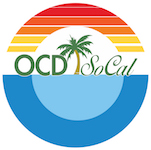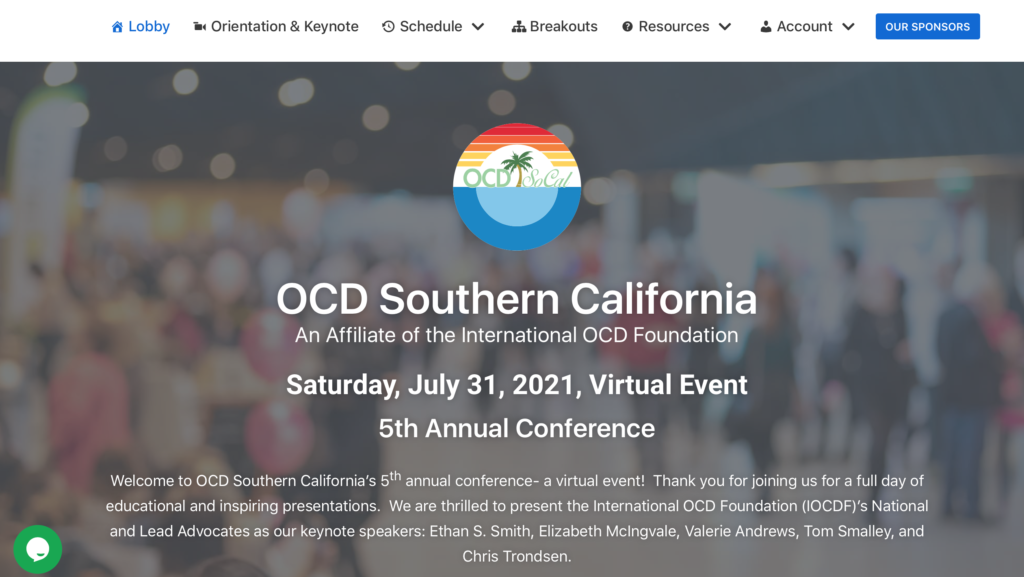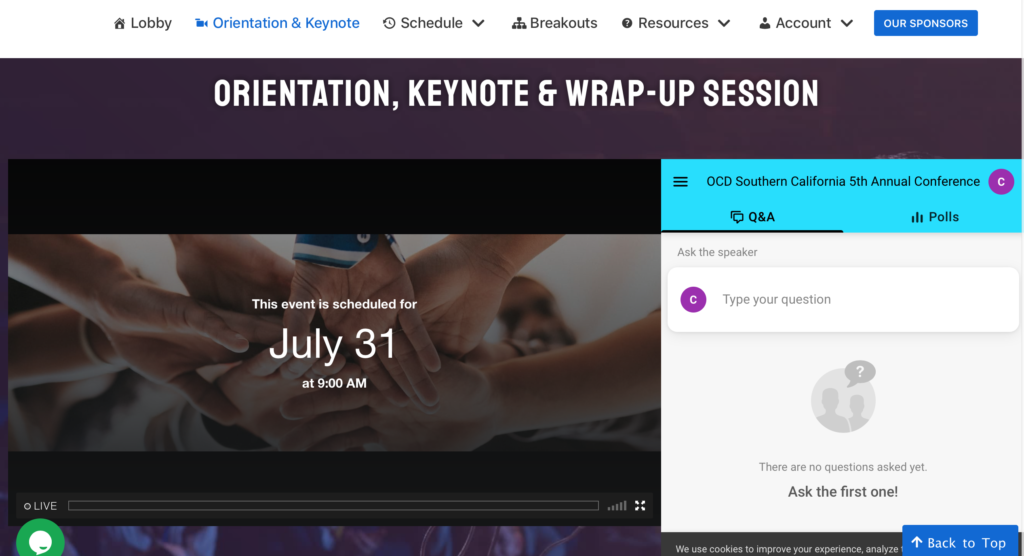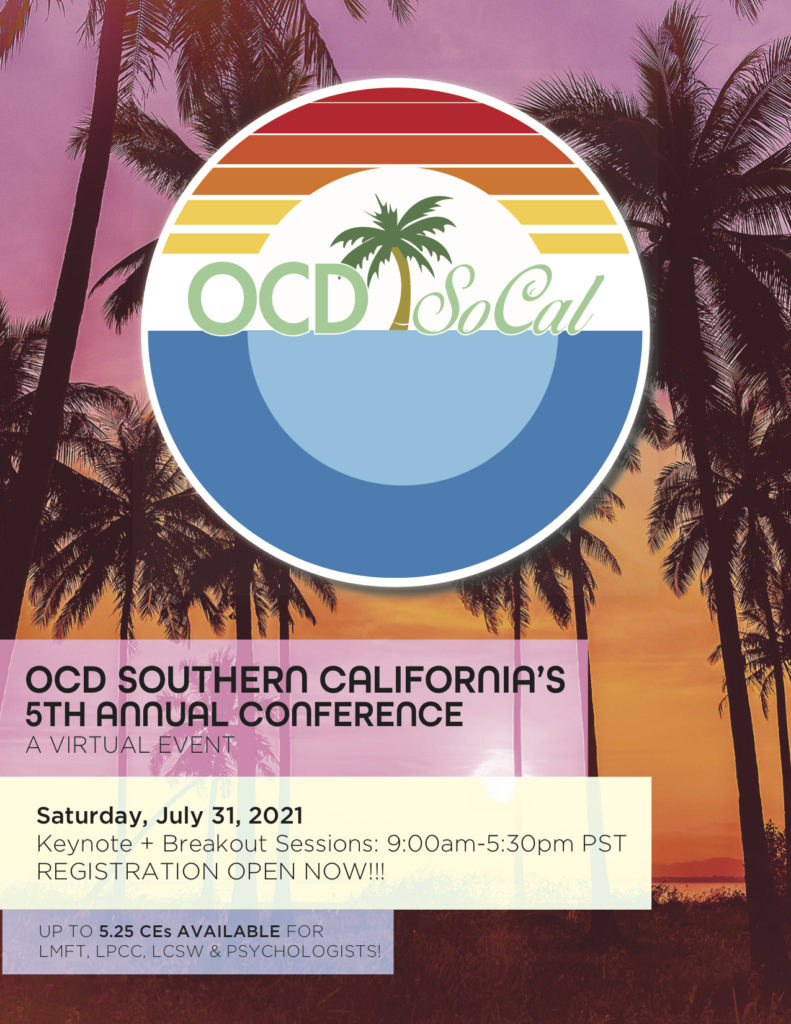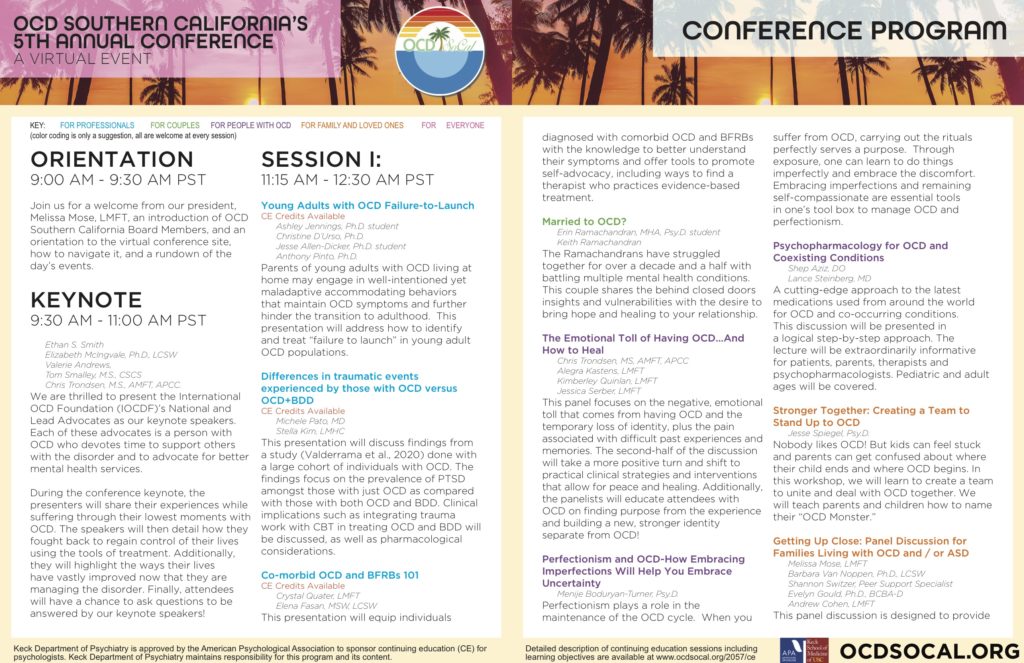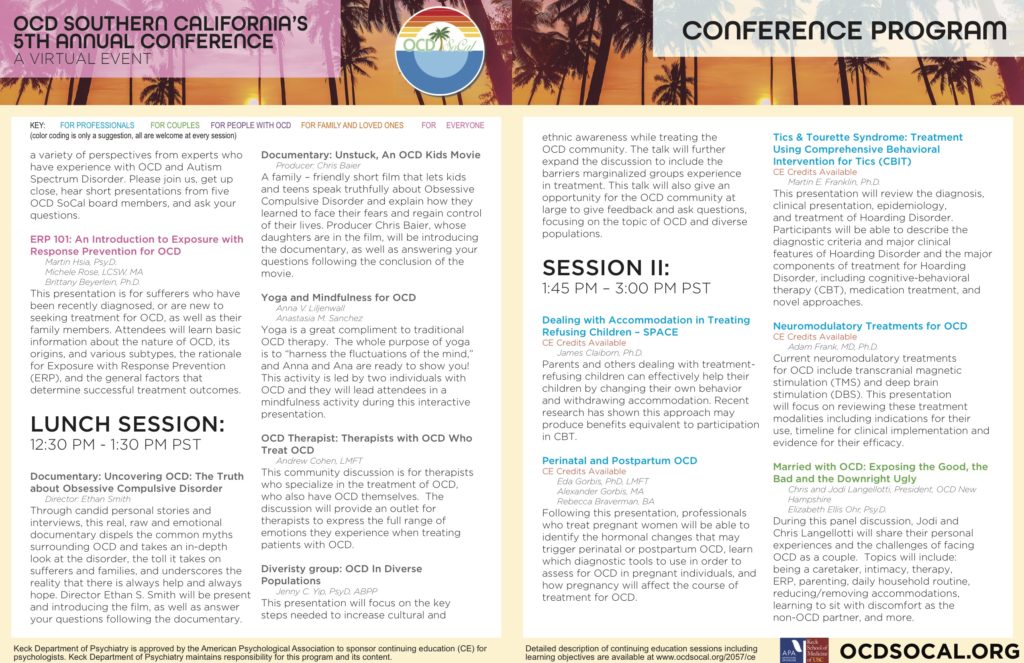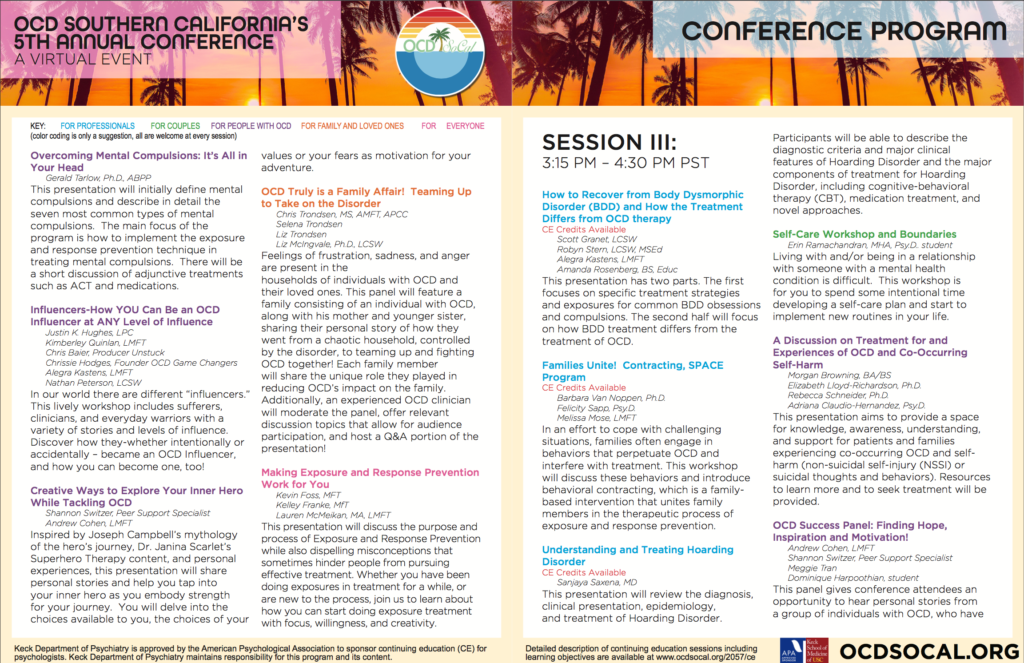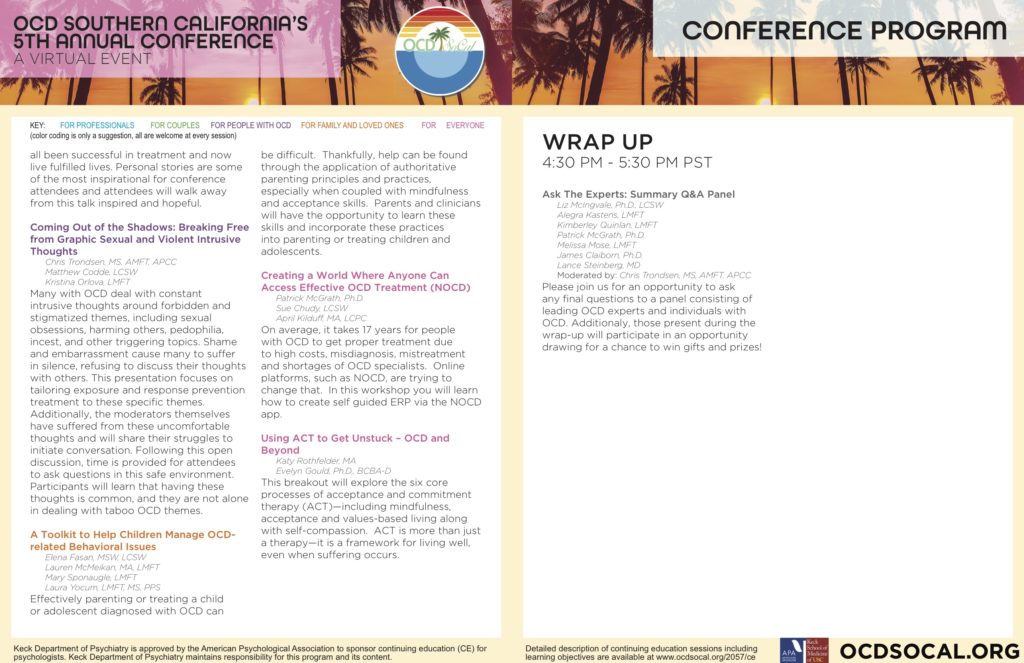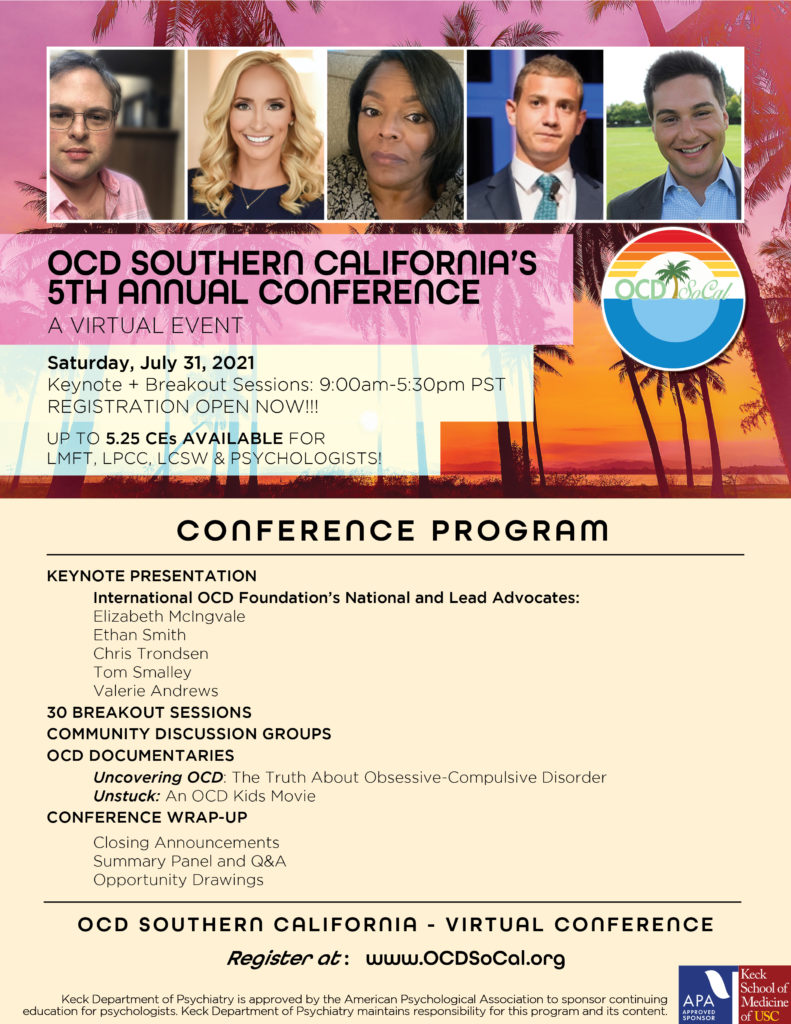To register for OCD SoCal’s 5th Annual OCD Conference, which is being held virtually this year on Saturday, July 31, 2021 from 9am to 5:30pm PST, click here: https://www.eventbrite.com/e/ocd-southern-california-fifth-annual-conference-tickets-156368529481. The conference is open to anyone, anywhere!
To learn more about the 35+ OCD-themed breakout sessions, OCD documentaries, and community discussion groups being offered– including titles, speakers, and presentation summaries, click here: http://ocdsocal.org/1936/learn-more-about-the-breakout-sessions-being-offered-at-ocd-socals-july-31st-virtual-conference/
If you have any conference related questions, please email us here: info@ocdsocal.org.
We look forward to seeing you at this year’s conference!
Additional information:
OCD Southern California Conference 2021: A Virtual Event
Join us for the 5th annual OCD Southern California conference–a virtual event this year! We are thrilled to present the International OCD Foundation (IOCDF)’s National and Lead Advocates as our keynote speakers. We are pleased to introduce our speakers:
Ethan S. Smith was born with OCD and struggled the majority of his life until receiving life-changing treatment in 2010. Ethan was the keynote speaker at the 2014 Annual OCD Conference in Los Angeles. He serves as an IOCDF National Advocate. He has devoted his life to reducing stigma around OCD and mental health, to education, and to supporting the OCD community.
Elizabeth McIngvale, PhD is the director of the McLean Houston OCD Program. Elizabeth is a National Advocate for the IOCDF and serves as a board member. She was diagnosed with OCD at age 12 and underwent both inpatient and outpatient therapy. Elizabeth engages in clinical work, research, and advocacy with the goal of improving access to care and OCD treatment.
Valerie Andrews received an OCD diagnosis in 2011 and, following treatment, began advocating in hopes of bringing awareness and inclusion within her own community and communities of faith. Her goal is to continue working as an IOCDF Lead Advocate and promoting change for women of age, color, and faith.
Tom Smalley, MS, CSCS was diagnosed with OCD at the age of 16 and shortly after became passionate about spreading awareness about OCD. Tom was the recipient of the 2019 IOCDF Hero Award. He speaks at the Annual OCD Conferences and has appeared on a variety of blogs and podcasts. Tom is particularly passionate about athletes and OCD and the stigma of mental health in sports.
Chris Trondsen, MS, AMFT, APCC, suffered from undiagnosed, severe OCD and BDD from childhood. Following treatment, Chris began advocating for mental health and shared his story on TV, newspapers and podcasts. Chris began speaking at Annual OCD Conferences, including giving the keynote with his mom at the 2011 conference. He also helped start the Young Adult Track at the annual conference.
Each of these advocates is a person with OCD who devotes time to support others with the disorder and to advocate for better mental health services.
Following the keynote speakers, there will be a total of 30 break-out sessions offered during three consecutive time slots. Ten breakout sessions will be offered during each time slot. More information about our presentations, led by some of the top OCD experts in the United States, is now posted on our website: ocdsocal.org. We are also offering community discussion groups, two documentaries, and a mindfulness/yoga workshop during the lunch break. The conference will end with a Summary Q&A Panel and an opportunity drawing for various prizes.
Up to 5.25 CEs available for LMFT, LPCC, LCSW and psychologists.
Cost: $25.00. Cost is per screen. A discount is available for families and groups with the purchase of three or more tickets during one transaction.
To obtain CEs, the cost for the conference entrance and CEs is $40.00.
OCD SoCal does not want cost to be a limiting factor for individuals who are interested in attending this event. Due to the generosity of donors, we are pleased to offer complimentary registration for those in need. Please email: info@OCDSoCal.org for free tickets.
We are also looking for volunteers to assist with the conference on the day of the event. Please email us at (info@ocdsocal.org) for more information about volunteer opportunities.
To register for the conference now, please visit: https://www.eventbrite.com/e/ocd-southern-california-fifth-annual-conference-tickets-156368529481
Keck Department of Psychiatry is approved by the American Psychological Association to sponsor continuing education for psychologists. Keck Department of Psychiatry maintains responsibility for this program and its content.
